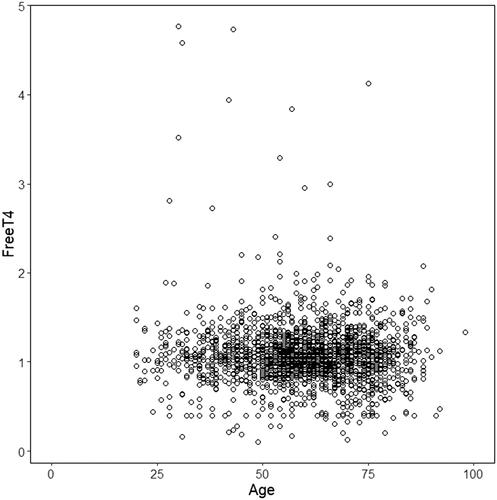Analysis of thyroid hormones and sarcopenia: association of creatine kinase and thyroid hormones (thyroid-stimulating hormone, triiodothyronine, and free thyroxine): a cross-sectional study
Abstract
Background
Korea is an ‘aged’ society on its way to becoming a ‘super aged’ society. As the population ages, new medical diseases become more prevalent. One such problem is sarcopenia. Sarcopenia, by definition, is skeletal muscle loss. Furthermore, additional studies have also pointed out smooth muscle loss. In this study, we focused on the correlation between thyroid hormones and sarcopenia with a biochemical viewpoint through creatine kinase.
Methods
This study was undertaken using the Shinchon Severance Hospital clinical data repository system. Data were collected from 1 November 2005 to 17 May 2019. These data were from both male and female patients aged 20 years or more, who visited the emergency department, outpatient clinic, or were admitted. Our review consisted of laboratory data, image data, and the physical status of the patients described in words.
Results
Higher levels of creatine kinase were observed in groups with low triiodothyronine (T3), low free thyroxine (fT4), high thyroid-stimulating hormone (TSH), and presence of dyslipidaemia. Correlation between creatine kinase and T3, fT4, and TSH was consistent after dyslipidaemia confounding factor was removed or adjusted for.
Conclusion
There was a consistent negative correlation between creatine kinase and fT4 and T3, both within the normal and abnormal range of thyroid hormone levels. Thyroid hormone replacement therapy with synthetic fT4 has its limitations. More studies are warranted for use of T3 or T3 receptor agonists.


 求助内容:
求助内容: 应助结果提醒方式:
应助结果提醒方式:


